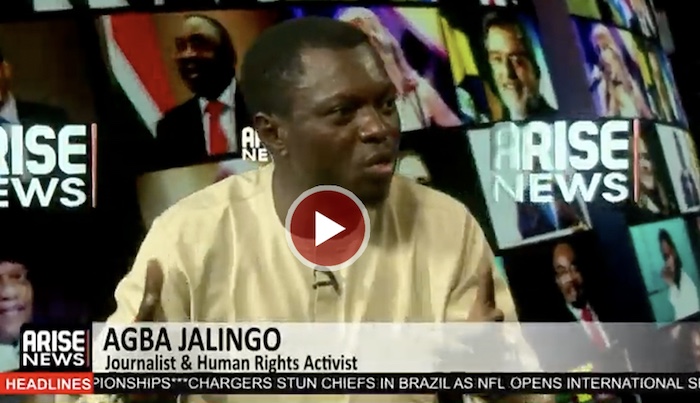Journalist and human rights activist Agba Jalingo has condemned what he described as the growing misuse of Nigeria’s Cybercrime Act to silence dissenting voices and intimidate journalists, warning that the law has become a tool against press freedom rather than a shield against criminals.
Speaking on ARISE NEWS on Saturday, alongside Azuka Ogujiuba, founder of Media Room Hub, and retired Commissioner of Police Lawrence Alobi, Jalingo said the trend of harassment under the current Inspector General of Police was deeply troubling.
“This is a big pattern with the police these days, and it’s growing worse under this IGP. Last year alone, 751 people were arrested in connection with cybercrime allegations. That is the highest number we have seen. I don’t think we even saw that under the military,” he said.
Jalingo accused security operatives of weaponising Section 24 of the Cybercrime Act to suppress journalists and critics.
“The Cybercrime Act was enacted mainly to deal with journalists and dissenters on social media. That law is of no other use. Section 24 is what they are using to run after us everywhere. That is why civil society organisations and journalists are fighting tooth and nail to see that that law is repealed.”
He also recalled his personal ordeal, detailing how he was abducted, tortured, and jailed over investigative reports.
“They kept me in the boot of a Toyota Highlander for 26 hours from Lagos to Calabar. I defecated on my body twice in handcuffs… I was detained for 43 days, then dumped in prison for six months, charged with treason and terrorism. Later, I was acquitted.”
Media entrepreneur Azuka Ogujiuba recounted her own recent arrest in Abuja after publishing a court-authorised statement on a land dispute. Despite following due process, she said she was interrogated and accused of cyberbullying.
“I was interrogated and accused of cyberbullying. Over 10 respected media houses published the same court order, yet I was arrested, tracked across Abuja, and manhandled,” she said.
Azuka explained that her platform was approached by Capital Guardians to publish a court ruling and, after verifying its authenticity, she proceeded with the publication. However, she later received police summons and was aggressively pursued.
“This thing that you’re calling cyberbullying, over 10 media houses published, like ThisDay newspaper, Guardian newspaper, The Nation newspaper, Punch, Telegraph, even TVC. They all published this thing.”
She alleged that police operatives tracked her movements, stormed an event she was covering, seized her phone, and attempted to intimidate her into silence.
Meanwhile, Retired Commissioner of Police Lawrence Alobi acknowledged that some officers abuse their authority, but insisted that such actions do not reflect the entire police force.
“Some officers can abuse their power, either being overzealous or based on ignorance… But you can’t use one individual’s action to judge the entire police force. There are good officers who enforce the law properly,” Alobi said.
However, he admitted that unscrupulous individuals and politicians sometimes influence police actions, calling for greater reforms to protect citizens’ rights and strengthen accountability within the force.
Jalingo warned that unless urgent reforms are made, press freedom in Nigeria will continue to deteriorate.
“We cannot criminalize the right to speak or to write. We should stop it. People do not have to always pass through a police station to get to court.”
Azuka’s ordeal, combined with Jalingo’s revelations and Alobi’s admission of abuses, highlights a growing crisis where police intimidation, unlawful arrests, and suppression of free speech threaten Nigeria’s democratic values.
Faridah Abdulkadiri
Follow us on:








